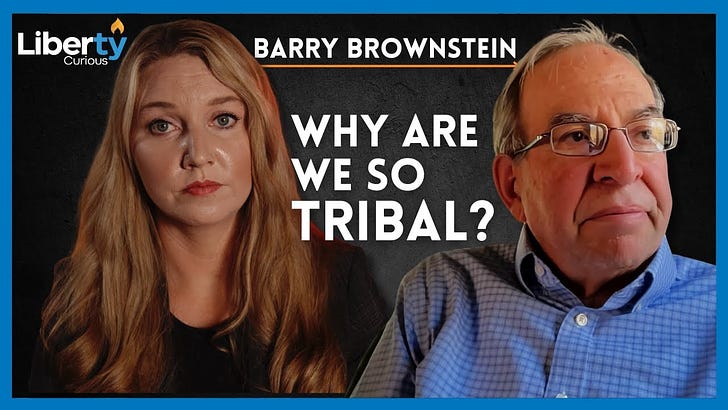After the Revolutionary War, Martha Washington wrote: “The difficulties, and distresses to which we have been exposed during the war must now be forgotten. We must endeavor to let our ways be the ways of pleasantness, and all our paths Peace.”
All our paths Peace! What a beautiful thought. I’m not sure why Martha Washington capitalized Peace. Did she recognize that Peace was not something she created but something she allowed to live through her?
Today, few seem to want Peace to live through them.
In their book The Anatomy of Peace, the Arbinger Institute distinguishes two fundamental ways of being in the world, leading to different ways of interacting with other people: “We can see others either as people, who matter like we ourselves matter, or as objects that don’t matter like we matter. When we see others as counting like we ourselves count, our hearts are at peace. When we see others as not counting like we count, our hearts are at war.”
A heart at peace is a state of mind; it doesn't mean that force isn't at times necessary. We may be forced to defend ourselves, but we are never “forced to despise, to rage, to denigrate, to belittle. No one can force a warring heart upon us. When our hearts go to war, we ourselves have chosen it.”
Today few seem to see both the Ukrainians and Russians as suffering people for whom we wish a better life. Many want the Russians to be thoroughly beaten and humiliated.
Do we want to fund Zelensky’s plan to retake the Crimea and expel almost a million Russians? As Robert Wright continues to remind us there are no good outcomes if the war continues:
If the pendulum swings in Russia’s favor, Ukraine will lose so much land that it will wish it had sought a peace deal now. But if the pendulum swings very sharply in Ukraine’s favor, the chances of catastrophe—nuclear war or a much wider conventional war—grow. And if there’s no big shift in either direction—if something not far from a stalemate is in the cards—then continued fighting will accomplish little other than killing and maiming people, while bringing, each day, some chance of unforeseen escalation.
Peggy Noonan explored the Cuban Missile Crisis last month and quoted extensively from a speech Kennedy gave eight months after the crisis. Kennedy’s words are in quotes in the following excerpt:
To believe peace is impossible is to believe war inevitable, and if that is so then mankind is doomed. “We need not accept that view.” No government is so evil that its people must be considered as lacking in every virtue. America and the Soviet Union are “almost unique among the major world powers” in that “we have never been at war with each other.”
If we can’t resolve all our differences, we can at least turn to common interests. “For, in the final analysis, our most basic common link is that we all inhabit this small planet. We all breathe the same air. We all cherish our children’s future. And we are all mortal.”
Importantly, there was this: “Above all, while defending our own vital interests, nuclear powers must avert those confrontations which bring an adversary to a choice of either a humiliating retreat or a nuclear war.” Choosing that path would be evidence of a “collective death-wish for the world.” That is why U.S. military forces are “disciplined in self-restraint” and our diplomats “instructed to avoid unnecessary irritants and purely rhetorical hostility.”
As for Khrushchev, his great-granddaughter, Nina Khrushcheva, recently related that “When Khrushchev was ousted one of the allegations was he took rockets away from Cuba and after that the Soviet Union looked weak.” Khrushchev replied: "What, I was supposed to start a world war?" Khrushchev had seen up close the horrors of World War 2. Putin may not think the same way, but we don’t have to match his insanity.
Alarmingly there is no longer a “continuously operating confidential channel” of communications between Washington and Moscow that helped to avert catastrophe in 1962.
Turn to “common interests?” To do so, we would have to give up our win-lose tribal beliefs that we have made very real in our minds. We would have to go back to our minds and make a different choice.
Today, of course, the president is Joe Biden, who, like his predecessor, is prone to angry outbursts rather than “self-restraint.” Does Biden realize he has a mind that can make a different choice? Heather Heying recently said this of Biden: “Among the many metaphorical naked emperors running around these days, one of them is the pretense that the U.S. has a Commander-in-Chief who has command of his own brain… ‘Lucid’ seems like a really low bar for POTUS to meet, and yet it’s a bar that is not currently being met.”
While the world is facing an existential crisis that should take close to 100% of his time, Biden is spending recent days still promoting ineffective and dangerous crony boosters, railing against fees for extra space seats on airlines and inviting to the White House an “influencer” trying to normalize “women” in tight shorts highlighting their male genitalia. And for those who disagree you will be labeled a threat to democracy.
Venture capitalist David Sachs points out that during this Ukraine war, the woke left and the neocon right have joined forces and are limiting peaceful views “by demonizing dissent, defaming opponents, and closing off as ideologically unacceptable any path to peace or even deescalation.”
So, with the world spiraling into madness which may destroy us all, we return to Martha Washington’s point. Do we want Peace to live through us? Today, this is the most important choice we can make. Bombs are killing and destroying lives in Ukraine, but are we addressing the hateful tribal bombs going off in our minds? Our “mind bombs” enable American politicians to press forward, not pushing for peace.
Are you willing to see the humanity in both Ukrainians and Russians? With a little willingness, we enter a personal classroom where our curriculum is to observe each thought we have that other people are “objects that don’t matter like we matter.”
The issue is not how often we fall into tribal thinking; the issue is whether we take responsibility for our mind bombs by not mentally justifying them.
Embracing this curriculum, you will experience more Peace. With greater ease, you will go through your day being kinder to everyone you encounter, other drivers on the road, the customer service rep who is not solving your issue, even co-workers and family members whose views diverge sharply from your own. Our learning will compound quickly as we see others as people “who matter like we ourselves matter.”
By attending to our minds, we become a force for Peace. Living “all our paths Peace” is a process of subtracting all the barriers within. There is not one grand decision to make, just a willingness, within the limits of human frailties, to pivot away from the battleground in our mind. No one else is responsible for our thinking, and our decisions as we go about our daily lives are the building blocks of society. If we mentally go to war in our daily lives, should we be surprised that politicians do the same?
Recently, I sat with my good friend Kate Wand for her Liberty Curious podcast series for the American Institute for Economic Research. We covered tribalism, the Ukraine, and much more.
Kate’s excellent Substack:
My following essays may be useful context for our conversation:




Yes. We can (and do) take actions in the outside world, but everything flows from within, and if our minds are a mess, so will our actions be. As the owners of ourselves, each of us is responsible for doing our best to listen to all the parts of our brain, to give them all a hearing, to notice how we are reacting to events that impinge upon us ("Why did that thing he said bug me in some way?"), and to be alert for more productive and less stressful ways of being. Very few individuals become genuine masters of this process, in my observation, but all of us can move in that direction and experience the benefits of doing so.